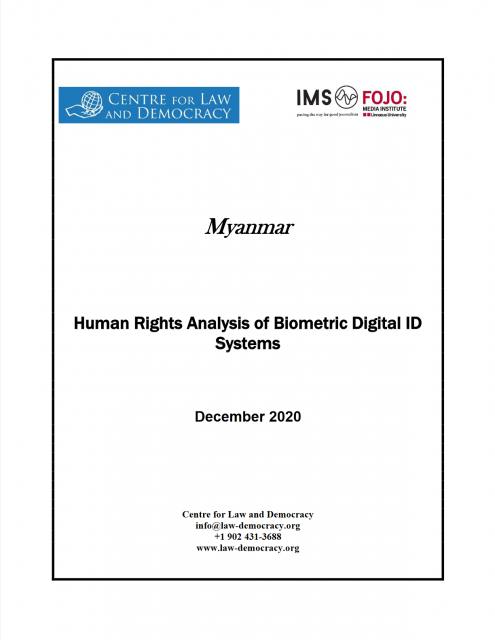Human Rights Analysis of Biometric Digital ID Systems

Introduction
This paper evaluates human rights issues that are relevant for a biometrics-based digital ID system that Myanmar might adopt. Digital ID systems are systems which assign individuals a single “digital ID” which is used to authenticate an individual’s identity and generally stored in a central database. They range from so-called soft digital IDs, such as a password used to access a social media account, to more secure sorts of IDs, which are often based on immutable and unique biomatric data such as fingerprints or iris scans. While these more secure biometric digital IDs do provide important benefits, such as the inability to crack into them, unlike digital passwords, they also raise a number of complex hman rights issues. This is due to issues associated with having a central database of personal data, the potential for abuse of any large-scale data collection exercise and the fact that digital IDs are often used as a mandatory system for accessing certain social services.
This paper comprises four parts. The first part reviews relevant human rights standards. The second presents the legal framework in Myanmar and reviews what we know about current efforts by the government to implement a national digital ID system there. The third part presents a comparative assessment of digital ID systems in India, Kenya and Jamaica, the latter two being countries where courts have found the local digital ID schemes to be unconstitutional. Finally this paper offers recommendations for Myanmar.


